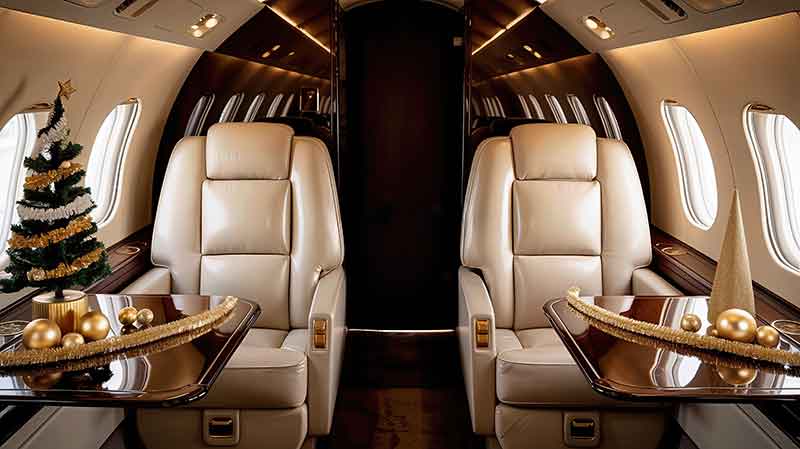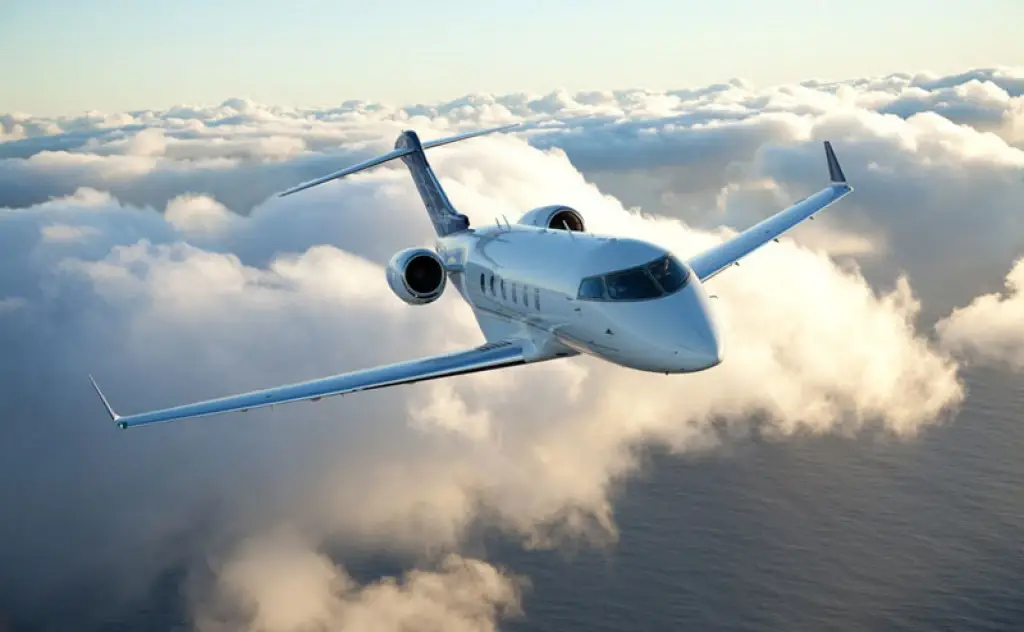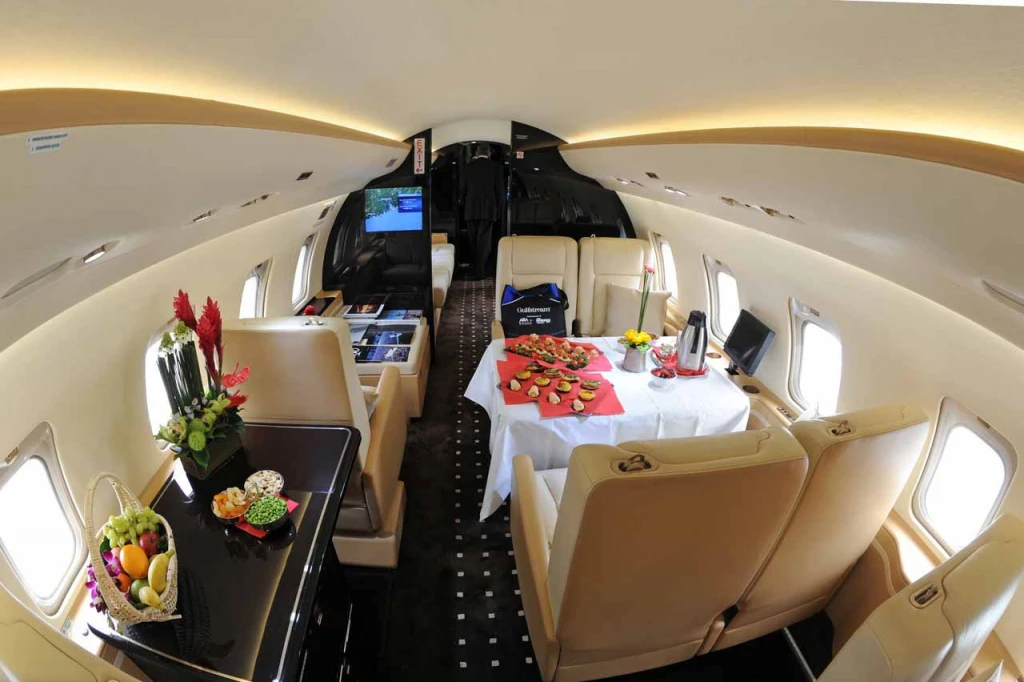How much does jet fuel cost for private jets? We'll explore whether private jet charter or jet ownership is the more cost-effective option for VIP travelers.
How Much Does It Cost to Fuel a Private Jet?
Jet fuel costs vary based on aircraft type, route, and fuel market conditions. This blog explains how much it costs to fuel a private jet, with real-world estimates, key pricing factors, and a comparison between owning and chartering for cost-conscious VIP travelers.
- Jet fuel prices range from $5 to $8 per gallon in the U.S.
- Fuel consumption varies by jet type: light, midsize, heavy, and VIP airliners
- Key cost drivers: aircraft size, flight time, location, market trends
- Newer, fuel-efficient aircraft can lower long-term costs
- Chartering includes fuel in the hourly rate, offering cost predictability vs. ownership
How much does jet fuel cost, and what does this mean for how much it costs to fuel a private jet? Understanding the factors that drive private jet fuel costs can help VIP travelers make informed decisions about their travel. However, the answer to that question is not as straightforward as it may seem.
Jet fuel prices frequently fluctuate based on a range of dynamic factors. These include global oil markets, location, and airport-specific fees. Similarly, an aircraft’s fuel consumption varies depending on the type of jet and its unique flight profile. Fuel surcharges and efficiency upgrades can also contribute to the final cost of fueling a private jet.
In this blog, we’ll expand on factors contributing to the average jet fuel cost per gallon. Additionally, we’ll offer real-world fueling estimates across various jet categories. Continue reading to plan the most efficient and cost-effective private jet flight.
What Is the Current Cost of Jet Fuel?
The U.S. Energy Information Administration (EIA) tracks the average price of jet fuel in the United States. As of Q2 of 2025, the EIA reports prices range from $5.00 to $8.00 per gallon in most U.S. markets.
Internationally, prices can be significantly higher, particularly in regions with limited supply or higher tax rates. Currently, Latin America is experiencing the highest average prices per gallon for jet fuel. In contrast, the Middle East is experiencing the lowest costs.
With that said, private aviation clients can often expect to pay more than the average cost for fuel. This is attributed to smaller volume purchases and fixed-base operator fees. In some rare cases, fuel surcharges may also be applicable. You may wish to consider these additional expenses when budgeting for private air travel.
Key Factors That Affect Private Jet Fuel Cost
The fuel capacity of an average private jet varies significantly, ranging from 400 gallons to over 2,000 gallons. While the price per gallon remains consistent, the total cost to fuel a jet will vary based on the specific aircraft.
Additionally, many other factors influence private jet fuel costs, including:
- Aircraft type. Larger jets burn more fuel per hour on average.
- Flight distance and altitude. Longer flights at optimal cruise altitudes are more efficient than shorter, suboptimal flights.
- Airport location. Fuel costs more in remote or high-traffic areas. Fuel may cost significantly less in countries with abundant oil reserves or those that heavily subsidize fuel.
- Operator contracts. Some charter operators negotiate bulk rates or use fuel cards, which may make fuel costs more affordable.
- Time of purchase. Jet fuel prices often fluctuate seasonally or in response to geopolitical events. For example, war, political tensions, and supply chain disruptions have impacted recent fuel costs worldwide.
However, aircraft with newer, fuel-efficient engines and optimized cruise altitudes can reduce burn by up to 15%. Choosing sustainable aircraft can help to lower overall costs over time.
Average Fuel Consumption by Jet Type
Fuel consumption plays a major role in determining overall private jet fuel cost. Such rates vary widely depending on the size and performance of the aircraft. Each size and performance category has its own burn rate and corresponding jet fuel cost per gallon.
Light Jets
Light jets have an average fuel burn rate of 120 to 160 gallons per hour. Light jets strike a balance between speed and relatively low fuel consumption. They are ideal for trips under three hours in duration.
At an average jet fuel cost per gallon of $6.00, a 2-hour flight on a light jet could consume around 300 gallons of fuel. That would bring the fuel cost to roughly $1,800 for a one-way trip.
Midsize Jets
Midsize jets have an average fuel burn rate of 190 to 250 gallons per hour. Jets in this category tend to be most popular for business travelers. They are typically preferred for trips with a minimum of three hours of flight time.
On midsize private aircraft, a 3-hour trip consumes an average of 700 gallons of fuel. Assuming an average jet fuel cost per gallon of $6.00, VIP travelers can expect to spend approximately $4,200 on fuel.
Heavy Jets
Heavy jets have an average fuel burn rate of 330 to 500 or more gallons per hour. They are ideal for long-haul international flights and VIP travel. However, a heavy jet’s high-performance engines burn significantly more fuel than smaller aircraft.
During a 6-hour transcontinental flight, a heavy jet may use 3,000 gallons or more. At $6.00 per gallon, it can cost travelers $18,000 or more in fuel costs alone.
Ultra-Long-Range and VIP Airliners
Ultra-long-range and VIP airliners have an average fuel burn rate of 500 to 1,000 or more gallons per hour. Thus, for ultra-long-haul or head-of-state missions, fuel costs can climb significantly.
A 10-hour long-haul flight on a VIP airliner could consume upwards of 10,000 gallons of jet fuel. Specific rates will depend on routing, altitude, and local jet fuel cost per gallon. However, the average VIP traveler can anticipate private jet fuel costs of $60,000 or more per trip.
Should Jet Fuel Costs Impact the Decision to Charter vs. Own?
Jet fuel cost is one of the largest ongoing expenses for private aircraft owners. Depending on usage, owners may spend millions of dollars annually on fuel alone. For many VIP travelers, this makes chartering a more cost-effective option.
With private jet charters, fuel costs are already built into the hourly rate or quote. That means VIP clients avoid the long-term commitment of managing fuel, maintenance, and crew. Private jet charters often offer better value, particularly for clients who fly fewer than 200 hours per year. If fuel price volatility is a concern, chartering offers more predictable, transparent pricing.
Ready to take off? Explore our private jet charter options and get a personalized quote for your next flight. Book your private jet charter today.









